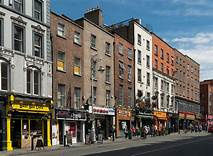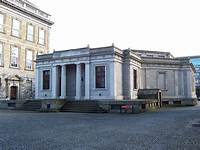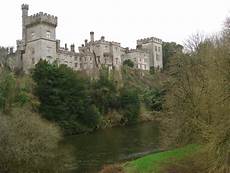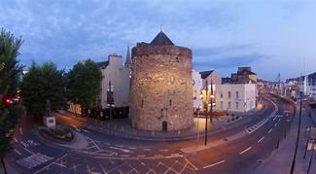Bishop Joseph Stock





Classical Scholar / Linguist / Bishop
A learned classicist & author: he was a man of peace. Maynooth John Paul 11 Library has his Narrative of the year of the French, 1798’ with Gratten Frayar for perusal.
Joseph Stock was born at No. I Dame Street, Dublin on 22nd December 1740. His parents were Ann (Waters) & Luke Stock; he had three brothers; Stephen, Frederick & Samuel also two sisters: Elizabeth (Sutton) & Lydia (Homan) [i]
Education
Joseph Stock was educated at Mr. Gast’s school also Trinity College in Dublin. He obtained a scholarship during 1759. He attended the collage of Corwell in the diocese of Raphoe in Donegal. [ii]
Graduation
Joseph Stock graduated with a B A during 1761. He gained a fellowship during 1763. [iii]
Career
Rev. Stock became prebendary of Lismire but resigned during 1795 when he became head – master of Portora Royal School. [iv]
Killala
Rev. Stock was ordained Bishop of Killala during January 1978. On his first visit to his castle he was taken as prisoner by General Jean Humbert following the landing of the French Forces in the support of the Irish within the county. As a prisoner of the French he left a partial record in his private diary; dated 23rd August 23 to 15th September 1798, which is printed in the History of the Rebellion of 1798 by Maxwell William Hamilton also in two letters to his brother Stephen that was published in the Auckland Correspondence. (iv. pages 46–51) [v]
Publications
During 1776 he published anonymously a life of George Berkeley (subsequently republished in the Biographia Britannica; in fact, at that time the only memoir on Berkeley based on contemporary information) In 1799 he published a more complete account of the French invasion in his Narrative of what passed at Killala in the Summer of 1978, by an Eyewitness. Bishop Stock penned The Book of the Prophet Isiah 1803 in both Hebrew & English with notes (Bath) also The Book of Job 1805 which was metrically arranged & newly translated into English with notes. (Bath) He published school editions of Tacitus also Demosthenes. He was an active contributor to several theological journals. He also penned two manuscript volumes of correspondence which are preserved in Trinity College Library that included letters to his son Henry in Dublin from 1806 to 1813. [vi]
Personal Life
He married twice: his first wife Mrs. Palmer was a sister of Bishop William Newcome (Church of Ireland Primate of All – Ireland) They had several children. His second marriage during 1795 was just ten weeks after the demise of his wife to a widow named Mary Obins. [vii]
Transfer
Bishop Stock was nominated on 12th April 1810 then appointed to Waterford & Lismore by letters patent on 1 May 1810. [viii]
Demise
Bishop Stock’s demise occurred on 13th August 1813 while in office aged seventy – two in Waterford City. [ix]
Tributes
Bishop Joseph Stock’s home became the headquarters of the insurgent army: he was well qualified to write of the colourful events. (page 28) [x]
Author & journalist Coogan Tim Pat delivered the Bishop Stock’s Address onThe Prospects of Peace in the North. Twenty – five years exactly since the beginning of the present Troubles! – Coogan’s Talk in Soldier’s Acres, Killala was a most topical event in view of speculation about an IRA Ceasefire. That Autumn Anglo – Irish Summit between Taoiseach Albert Reynolds with British Prime Minister John Major would be of importance at that time. Since its inception during 1987 the Bishop Stock Address has been one of the main peace forums in Ireland. Following the capture of his palace at the time of the landing of the French troops; Bishop Stock was an important Intermediary between the troops & the local people. He exercised a moderate influence in preventing sectarian tension. (page 34) [xi]
‘My Illustrious predecessor Bishop Joseph Stock; held an intellectual importance of the Act of Remembrance in Healing & Reconciliation’ this tribute was shared by Right Rev. Richard Henderson the Church of Ireland Bishop of Tuam, Killala & Achonry at the Humbert Summer School in Killala. (page 49) [xii]
Dr. Martin lauded a copy of Stock’s Narratives of what passed at Killala with copies of previous addresses that commemorated the memory of the classical scholar Bishop Joseph Stock. Dr. Martin He stated that ‘although Stock remained loyal to King George, he was an impressive Irishman.’ [xiii]
John Hume spoke from the pulpit of the Historic Church of Ireland Cathedral of St. Patrick’s that had been the see of Bishop Joseph Stock (a fluent French speaker) during 1798 when General Humbert with the French Army of over one thousand soldiers arrived unexpectedly. They immediately commandeered his Residence, seized his cattle with all his worldly possessions, then helped themselves to his well-stocked wine cellar. ‘The Bishop made people listen to one another, he was a man of conciliation.’ (Cooney John 2006 Beyond the Pale (page 114) [xiv]
The learned Anglican Bishop of Killala suddenly found himself at the centre of international warfare on 22nd August 1789 when his palace was made headquarters of General Jean Humbert’s ‘Army of Ireland.’ As an important Intermediary between the French & the local Protestant class on one hand with the other the privileged property class that remained loyal to King George 111 and the impoverished pro – French Roman Catholic populace. (Cooney) [xv]
Bishop Stock’s promotion of peace in the violence – inflicted North as he intercepted General Humbert also as an interpreter between General Humbert’s rebellious Irish allies with the populace who remained loyal to King George 111 was mentioned by Bishop Henderson in an Annual Address dedicated to Bishop Stock’s memory. (page 100) [xvi]
An account of Bishop Stock is available to view on this site: http://www.mayolibrary.ie/en/LocalStudies/MayoPeople/MayoPeopleN-Z/
A portrait of Rev. Stock may be viewed at this site: https://seamusdubhghaill.com/2016/12/22/birth-of-joseph-stock-bishop-of-waterford-lismore/
Footnotes
[i] Birth of Joseph Stock (https://seamusdubhghaill.com/) [Assessed 21st September 2019]
[ii] Ibid
[iii] Ibid
[iv] Ibid.
[v] Ibid.
[vi] Ibid.
[vii] Joseph Stock (Bishop) (https://en.wikipedia.org/wiki/)) [Assessed 21st September 2019]
[viii] Bishop of Waterford & Lismore (https://en.wikipedia.org/wiki) [Assessed 21st September 2019]
[ix] ibid
[x] The Western People 21st July 1982 [assessed 18th September 2019]
[xi] The Western People 17th Aug 1994 [assessed 18th September 2019]
[xii]The Western People 2nd Sept 1998 [assessed 18th September 2019]
[xiii] The Western People 29th Aug 2006 [assessed 18th September 2019]
[xiv] The Western People 28th August 2007 [assessed 18th September 2019]
[xv] The Western People 12th Aug 2008 [assessed 18th September 2019]
[xvi]The Western People 24th August 2010 [assessed 18th September 2019]







No Comments
Add a comment about this page